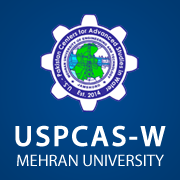The IWRM program enhances students’ knowledge and capacities to deal with multi- disciplinary aspects of water resource allocation and use under conditions of uncertainties. Key topics constituting the program include: principles of IWRM, hazard planning and management, water governance, institutions and policies, water dispute management, water valuation, and GIS and remote sensing in water resources.
Given the emerging complexities in water sector, the need of coordinated decision making across sectors and scales has always been felt. IWRM provides a platform where young leaders are trained in interdisciplinary concepts and methods for integrated water resources management, to meet the complex sustainability challenges.
The graduate program in IWRM aims at producing future leaders and qualified country specialists in water sector, enhancing student’s knowledge and capacities to deal with multidisciplinary aspects of water resource allocation and use under conditions of uncertainties. The program presents a combination of theory and practicum in the areas of hazard planning and management, water governance, institutions and policies, water dispute management, water valuation, and GIS and remote sensing. Study tours/ field trips, a major part of the program are aimed at training student water related technical and operational knowledge.
The Master’s degree program in IWRM stretches over four semesters: three semesters of intensive course work and one semester of research. Whereas, the total duration for PhD degree program in IWRM is three years with 18 credit hours course work and research.
Recommended Elective Courses
- Water Dispute Management
- Systems Analysis and Optimization
- Climate Change Impacts on Water Resources
- Model Applications in IWRM
- Stochastic Hydrology
- Water Conservation and Rainwater Harvesting

